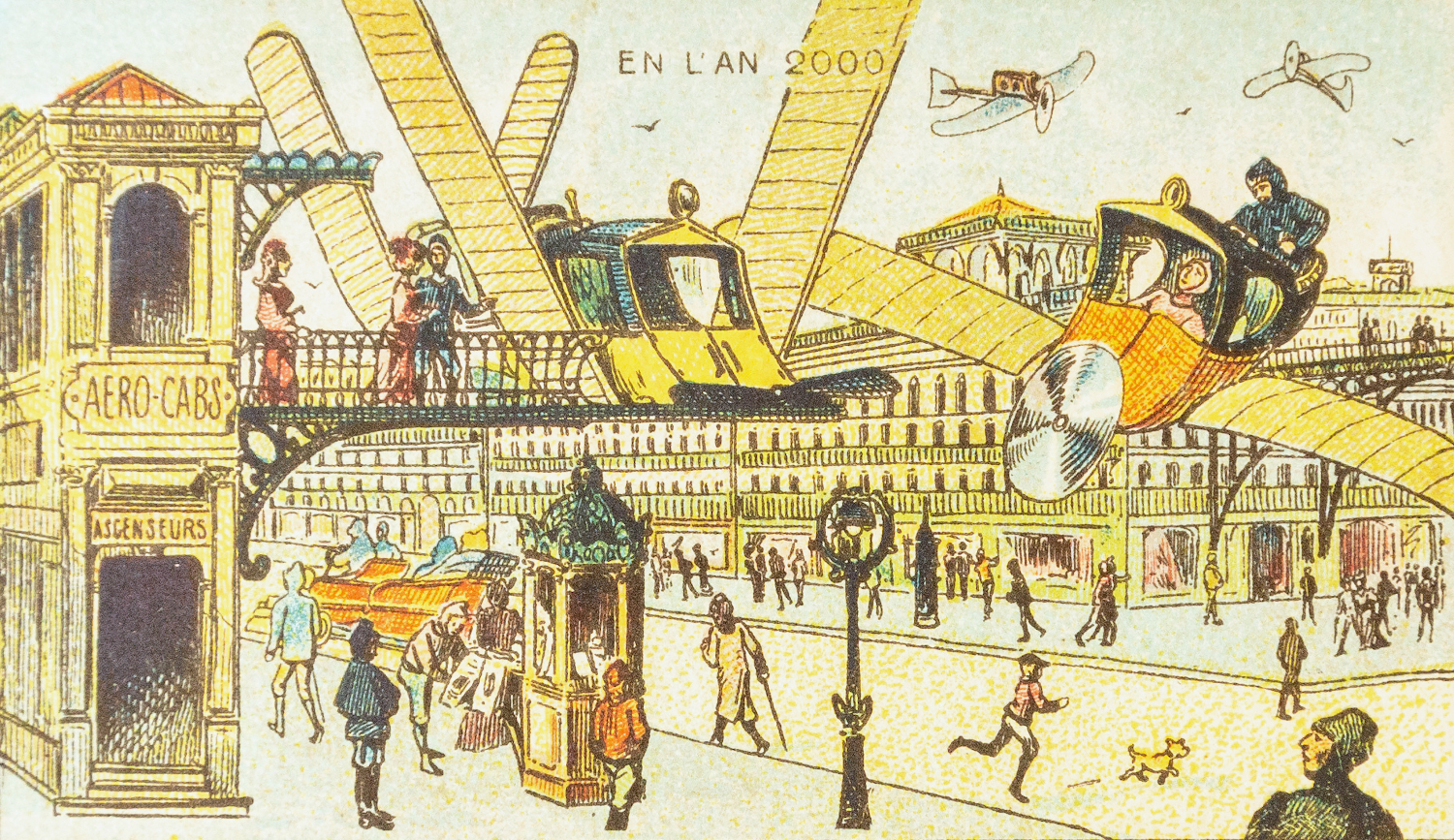The Public Domain Review has a series of wonderful illustrations from around 1900, imagining the then future year 2000. As you will see, people hoped for aerial firemen, underwater fish-riding races and whale buses. While the illustrations are fun to look at, you can’t help but admit that most of them are not too far off on a conceptual level. What can be learnt from that: When we try to imagine the future, we tend to extrapolate current technology and underestimate major disruptions. But then again, heck, they even saw batman coming, fighting his kins in cars.
From Weekly Filet #76, in July 2012.
🔗
Meet the meat fakers. Their plan is to make killing animals (almost) obsolete by producing in vitro meat that is indistinguishable from the real deal.
From Weekly Filet #74, in June 2012.
🔗
In a very long, yet brilliant essay, David Graeber explores why the future that is now just doesn’t live up to the expectations people had for it back in the sixties and seventies. This anthropologist’s view on technological research and development of the past decades brings to light some intriguing explanations (innovation was pushed in the wrong fields, motivation faded after the Cold War, it’s bureaucracy’s fault, it’s capitalism’s fault…). Reading the article will take you an hour. Thinking about it will take longer. That’s proof it’s worth the time.
From Weekly Filet #74, in June 2012.
🔗
This promising (and important!) project aims at making terms of service understandable by classifying them and pointing out shady parts.
From Weekly Filet #72, in June 2012.
🔗
A great read (in German) on automation and how it might eventually lead to an unconditional basic income for everyone.
From Weekly Filet #69, in May 2012.
🔗
Today, Facebook is hitting the stock market. The NY Times has an interactive graphic that compares its IPO to those of all other tech companies since 1980. The big story unfolds when you move vom step 1 to step 2.
From Weekly Filet #68, in May 2012.
🔗
“Any sufficiently advanced technology is indistinguishable from magic”, Arthur Clarke famously said. It has never become clearer to me how right he was than while reading this article about mind-boggling origami research being done at MIT in Cambridge. They went all the way from an old Houdini trick to DNA origami nanorobots capable of killing cancer cells. A must read.
From Weekly Filet #67, in May 2012.
🔗
Free Wi-Fi across the country. Voting via Internet. One card to store and manage all your official documents. Science Fiction? No, Estonia.
From Weekly Filet #65, in April 2012.
🔗
We mustn’t leave this topic to Jeff Jarvis and his sauna comparisons. Here’s a more profound contribution.
From Weekly Filet #64, in April 2012.
🔗
The prospect of video games becoming a respected art form has been around for almost as long as the medium itself. Yet, commercial and technological success all too often overshadows aesthetic breakthroughs. One notable exception is Journey, a gorgeous, mesmerizing, thought provoking game for Sonys PS3. Do yourself a favour: Download it, play it and afterwards read this fascinating article about how it came to be. (by Thom Nagy, paving the way for NZZ into a digital future)
From Weekly Filet #63, in April 2012.
🔗
Make sense of what’s happening, and imagine what could be.
Carefully curated recommendations on what to read, watch and listen to. For nerds and changemakers who love when something makes them go «Huh, I never thought of it this way!».
Undecided? Learn more | Peek inside




